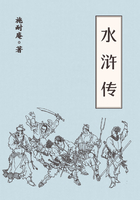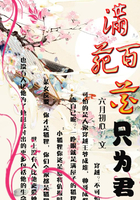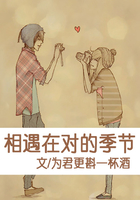And tatchipen they pens, The dinneleskie gorgies, For mande chovahans The luvvu from their putsies.
Britannia is my name;
I am a swarthy Lovel;
The Gorgios say I be A witch of wondrous power;And faith they speak the truth, The silly, foolish fellows, For often I bewitch The money from their pockets.
Fortune-telling in all countries where the Gypsies are found is frequently the prelude to a kind of trick called in all Gypsy dialects by something more or less resembling the Sanscrit kuhana;for instance, it is called in Spain jojana, hokano, and in English hukni. It is practised in various ways, all very similar; the defrauding of some simple person of money or property being the object in view. Females are generally the victims of the trick, especially those of the middle class, who are more accessible to the poor woman than those of the upper. One of the ways, perhaps the most artful, will be found described in another chapter.
THE HUKNI
The Gypsy makes some poor simpleton of a lady believe that if the latter puts her gold into her hands, and she makes it up into a parcel, and puts it between the lady's feather-bed and mattress, it will at the end of a month be multiplied a hundredfold, provided the lady does not look at it during all that time. On receiving the money she makes it up into a brown paper parcel, which she seals with wax, turns herself repeatedly round, squints, and spits, and then puts between the feather-bed and mattress--not the parcel of gold, but one exactly like it, which she has prepared beforehand, containing old halfpence, farthings, and the like; then, after cautioning the lady by no means to undo the parcel before the stated time, she takes her departure singing to herself:-O dear me! O dear me!
What dinnelies these gorgies be.
The above artifice is called by the English Gypsies the hukni, and by the Spanish hokhano baro, or the great lie. Hukni and hokano were originally one and the same word; the root seems to be the Sanscrit huhana, lie, trick, deceit.
CAURING
The Gypsy has some queer, old-fashioned gold piece; this she takes to some goldsmith's shop, at the window of which she has observed a basin full of old gold coins, and shows it to the goldsmith, asking him if he will purchase it. He looks at it attentively, and sees that it is of very pure gold; whereupon he says that he has no particular objection to buy it; but that as it is very old it is not of much value, and that he has several like it. "Have you indeed, Master?" says the Gypsy; "then pray show them to me, and I will buy them; for, to tell you the truth, I would rather buy than sell pieces like this, for I have a great respect for them, and know their value:
give me back my coin, and I will compare any you have with it." The goldsmith gives her back her coin, takes his basin of gold from the window, and places it on the counter. The Gypsy puts down her head, and pries into the basin. "Ah, I see nothing here like my coin,"says she. "Now, Master, to oblige me, take out a handful of the coins and lay them on the counter; I am a poor, honest woman, Master, and do not wish to put my hand into your basin. Oh! if I could find one coin like my own, I would give much money for it; barributer than it is worth." The goldsmith, to oblige the poor, simple, foreign creature (for such he believes her to be), and, with a considerable hope of profit, takes a handful of coins from the basin and puts them upon the counter. "I fear there is none here like mine, Master,"says the Gypsy, moving the coins rapidly with the tips of her fingers. "No, no, there is not one here like mine--kek yeck, kek yeck--not one, not one. Stay, stay! What's this, what's this? So se cavo, so se cavo? Oh, here is one like mine; or if not quite like, like enough to suit me. Now, Master, what will you take for this coin?" The goldsmith looks at it, and names a price considerably above the value; whereupon she says: "Now, Master, Iwill deal fairly with you: you have not asked me the full value of the coin by three three-groats, three-groats, three-groats; by trin tringurushis, tringurushis, tringurushis. So here's the money you asked, Master, and three three-groats, three shillings, besides. God bless you, Master! You would have cheated yourself, but the poor woman would not let you; for though she is poor she is honest": and thus she takes her leave, leaving the goldsmith very well satisfied with his customer--with little reason, however, for out of about twenty coins which he laid on the counter she had filched at least three, which her brown nimble fingers, though they seemingly scarcely touched the gold, contrived to convey up her sleeves. This kind of pilfering is called by the English Gypsies cauring, and by the Spanish ustilar pastesas, or stealing with the fingers. The word caur seems to be connected with the English cower, and the Hebrew kara, a word of frequent occurrence in the historical part of the Old Testament, and signifying to bend, stoop down, incurvare.
METROPOLITAN GYPSYRIES--WANDSWORTH, 1864
What may be called the grand Metropolitan Gypsyry is on the Surrey side of the Thames. Near the borders of Wandsworth and Battersea, about a quarter of a mile from the river, is an open piece of ground which may measure about two acres. To the south is a hill, at the foot of which is a railway, and it is skirted on the north by the Wandsworth and Battersea Road. This place is what the Gypsies call a kekkeno mushes puv, a no man's ground; a place which has either no proprietor, or which the proprietor, for some reason, makes no use of for the present. The houses in the neighbourhood are mean and squalid, and are principally inhabited by artisans of the lowest description. This spot, during a considerable portion of the year, is the principal place of residence of the Metropolitan Gypsies, and of other people whose manner of life more or less resembles theirs.















